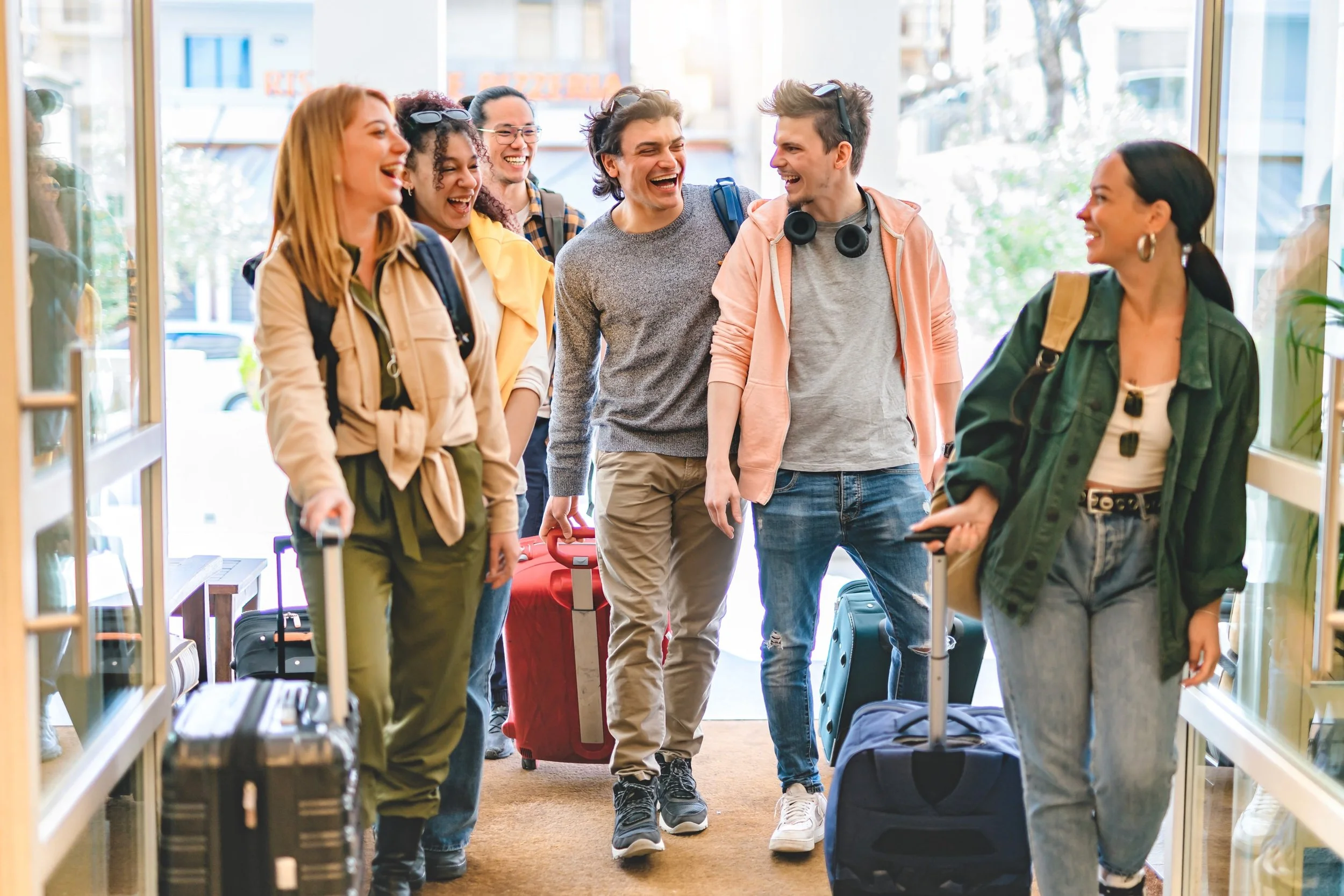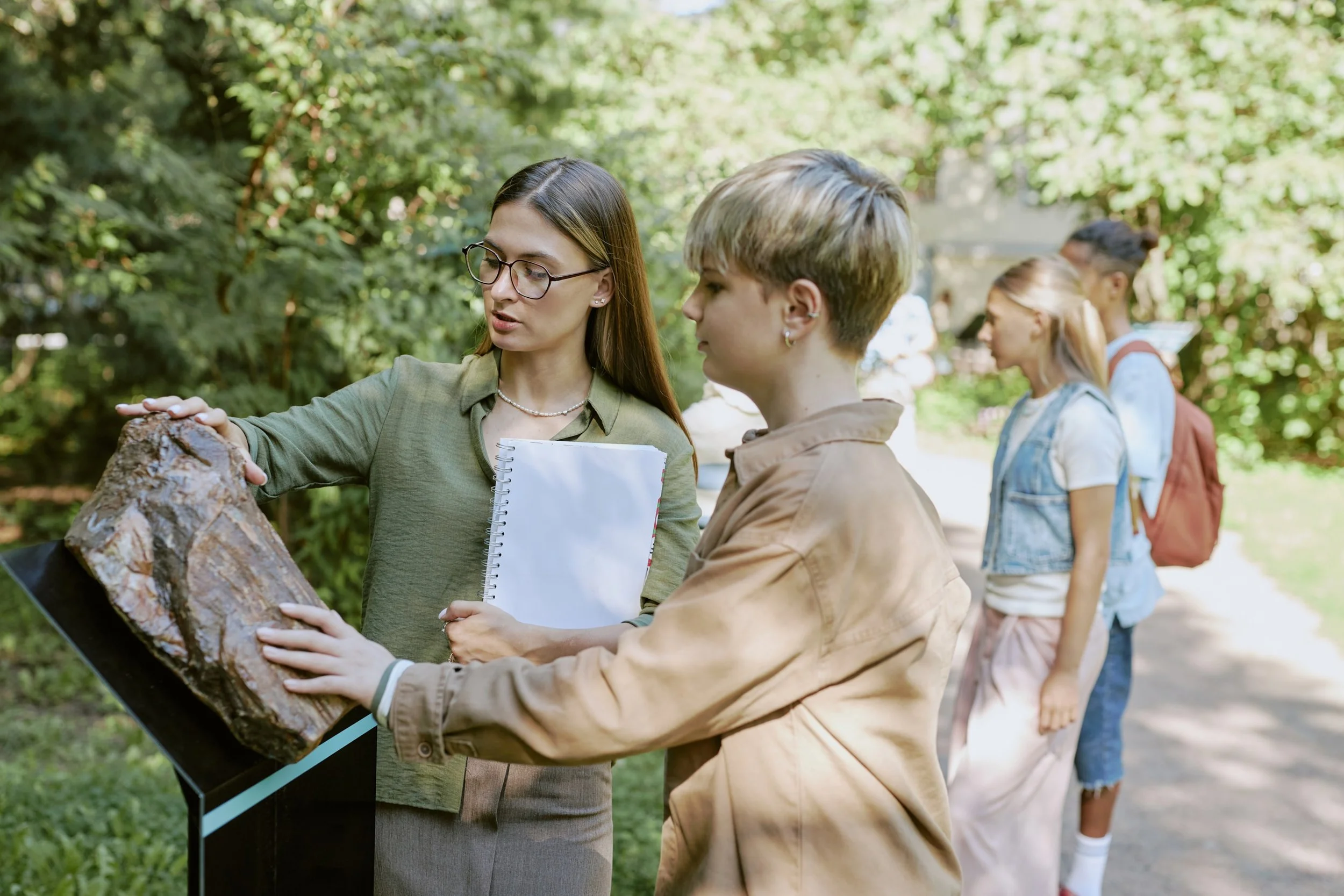9 Reasons Why Educational Trips Enhance Student Learning
Learning doesn’t always have to happen inside four classroom walls. Educational trips take students out into the real world, where classroom knowledge comes alive. These experiences let students see, touch, and explore the concepts they’ve been studying, making abstract concepts tangible.
The goal of educational tours is simple: to make learning meaningful, memorable, and fun. By stepping outside the classroom, students understand subjects more deeply and develop essential life skills that shape them into curious, confident individuals. Below are 9 reasons why you simply shouldn't miss the opportunity to take your students on a trip.
1. Enhance Student Experience
School trips give students a chance to learn by doing instead of just listening to lectures or reading textbooks. These educational experiences make learning more engaging by connecting lessons to real-life examples and case studies that bring key concepts to life. Visiting museums, historical sites, and other educational destinations helps students understand subjects more deeply while sharpening their critical thinking skills. Beyond academics, school trips also encourage teamwork and community, as students collaborate, share experiences, and work together toward common goals.
2. Apply Theoretical Concepts
Student travel allows students to apply theoretical concepts to real-world situations, making learning more practical and engaging. Through hands-on, experiential activities, students strengthen their problem-solving, critical thinking, and creativity. These experiences also build communication and teamwork skills, as students collaborate with peers and teachers toward shared goals. When tailored to class objectives, field trips become an invaluable way to connect classroom learning with real-life understanding.
3. Prepare Students for Global Society
Educational trips help prepare students for a global society by exposing them to diverse cultures, ideas, and perspectives. Visiting different countries and communities allows students to gain a deeper appreciation for the world’s complexity and interconnectedness. These real-world experiences make learning more relevant, helping students find purpose and direction. Additionally, interacting with people from various backgrounds enhances their language and communication skills, fostering global awareness and empathy.
4. Develop Social Skills
Educational travel helps students build important social skills like communication, collaboration, and teamwork. Through group activities and shared projects, they learn to work effectively with others and form meaningful connections with peers. These experiences also strengthen emotional intelligence, teaching students how to handle different social situations and manage emotions positively. The social and interpersonal skills gained through travel support their success in future careers and personal growth.
5. Reinforce Key Concepts
Educational trips help reinforce key concepts learned in the classroom by turning theory into real-life experiences. Visiting museums, historical sites, and other learning destinations allows students to see lessons in action, deepening their understanding and boosting critical thinking. These trips also let teachers assess how well students grasp material and identify areas for improvement, making educational travel a powerful tool for strengthening classroom learning.
6. Develop Analytical Skills
Educational tours strengthen students’ analytical and critical thinking skills by encouraging them to evaluate information and think creatively. Through hands-on activities and projects, they learn to solve problems and view challenges from multiple perspectives. These experiences also enhance research and data analysis skills, as students gather insights from real-world sources. The ability to think critically developed during these tours benefits students in both their academic and professional journeys.
7. Build Confidence and Independence
Educational trips encourage students to step out of their comfort zones and experience new environments on their own. Whether it’s navigating a museum, presenting findings during a tour, or engaging with new people, students gain confidence in their abilities. These experiences teach independence, responsibility, and self-assurance, which are valuable traits that help students grow personally and academically.
8. Inspire Career Interests
Many students discover new passions and potential career paths during educational trips. A visit to a science center might spark interest in engineering, while a tour of a historical site could inspire a love for archaeology or history. By exposing students to real-world professions and environments, educational travel helps them make informed decisions about their future goals and ambitions.
9. Encourage Lifelong Learning
Perhaps the most lasting benefit of educational trips is how they ignite curiosity. When students experience learning beyond textbooks, they begin to see education as an exciting, ongoing journey rather than a classroom task. This curiosity-driven mindset encourages them to keep exploring, asking questions, and learning long after the trip is over, turning them into lifelong learners.
Conclusion: The Lasting Impact of Educational Tours
At their core, educational trips do far more than enhance classroom learning; they ignite curiosity, build empathy, and inspire real-world understanding. These experiences leave lasting impressions, teaching lessons that can’t be captured in textbooks alone. Students return from these journeys more confident, independent, and eager to explore the world around them.
By combining adventure with education, schools help students grow into thoughtful, capable individuals who are prepared to take on new challenges and embrace lifelong learning.
If you’re ready to give your students a learning experience beyond the classroom, contact Trip U Tours to help design meaningful, well-planned educational trips that blend fun, discovery, and learning.



